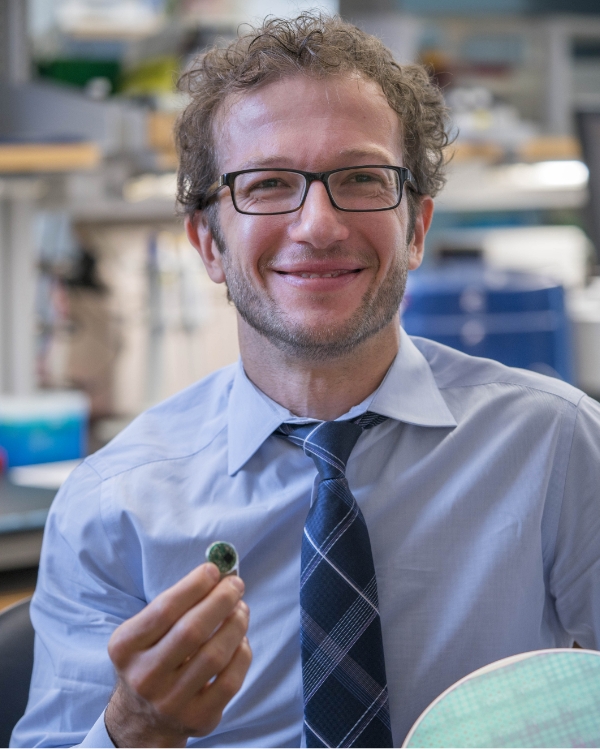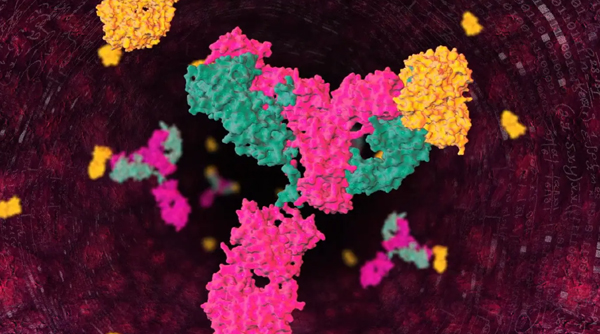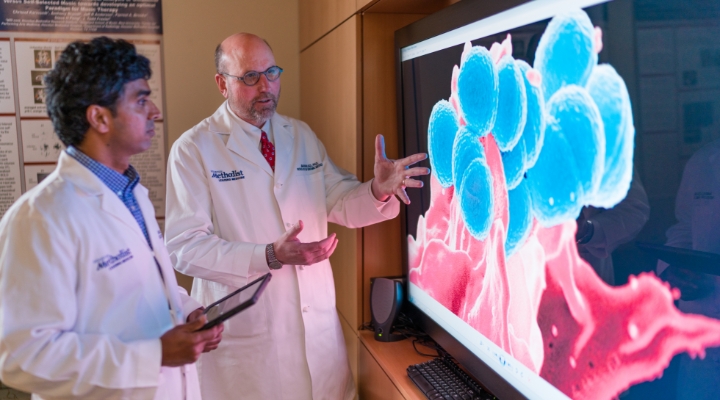Science in Service
of
Medicine
President & CAO Letter
Metrics 2019
Cycle of a Cure
From Discovery to Clinic


Introduction

Precision Medicine


Introduction

Tracing Tau to Tackle Alzheimer's Disease

Translational Imaging Center Revamps for Revolutionary 7T MRI

Hope for Slowing ALS

The Heart of Progress: Innovative Valves Create a Legacy for the Future

Test-Driving Carbon Fiber Materials in Space

Lab-on-a-chip Shines Light on Bystander Effect

Creating an Antibody to Fight Silent Killers

A New View of Strep

Translational Luminaries
result



President’s letter
2021 Metrics
Cycle of a Cure
Visionary Gifts

Discovery to Clinic

Innovative Education

Translational Luminaries
Introduction
Building Blocks for Bone Regenration
RNA Therapeutics
Mobile App for Healthy Habits for Breast Cancer Survivors
Designing a Flexible Approach to Breast Reconstruction
Introduction
Tracing Tau to Tackle Alzheimer's Disease
Translational Imaging Center Revamps for Revolutionary 7T MRI
Hope for Slowing ALS
The Heart of Progress: Innovative Valves Create a Legacy for the Future
Test-Driving Carbon Fiber Materials in Space
Lab-on-a-chip Shines Light on Bystander Effect
Creating an Antibody to Fight Silent Killers
A New View of Strep
result


Test-Driving Carbon
Fiber Materials in Space
Space study focuses on potential biomedical, aerospace applications
Houston Methodist researchers are studying Italian sports car maker Automobili Lamborghini’s carbon fiber materials in space.
Nanomedicine researchers from Houston Methodist are working with Automobili Lamborghini to test carbon fiber samples on the International Space Station in low-Earth orbit environmental conditions.
The research payload, which launched Nov. 2, 2019 to the International Space Station (ISS), is part of a collaborative project involving Houston Methodist Research Institute, Automobili Lamborghini and the ISS U.S. National Laboratory (ISS National Lab).
Grattoni heads the Center for Space Nanomedicine at Houston Methodist and began sending select research projects to the ISS in 2015. The center’s focus is on nanotechnology-based therapeutics, biomedical devices for precision medicine, regenerative medicine and tissue engineering. The Lamborghini project is the fourth of 10 experiments from Grattoni’s lab scheduled for the ISS over the next several years.

Alessandro Grattoni
, PhDThe 6-month study aboard the ISS, led by Alessandro Grattoni, PhD, principal investigator and chair of the Department of Nanomedicine, will evaluate the unique capabilities of Lamborghini’s carbon fiber materials. The unique environment allows researchers to learn more about the properties and characteristics of the materials, in the hope of one day developing technologies and devices that could be used on Earth and in space.
The study aboard the ISS will evaluate the ability of Lamborghini’s carbon fiber materials to withstand temperature fluctuations, radiation exposure (including ultraviolet and linear energy transfer), vacuum and atomic oxygen exposure.
Lamborghini carbon fiber materials
The ISS National Lab works in cooperative agreement with NASA to launch research investigations to the orbiting laboratory that have the capacity to benefit life on Earth through space-based inquiry. Future Houston Methodist experiments scheduled for launch to the ISS include an implantable nanochannel drug-delivery device that will be remotely controlled on Earth, as well as a platform for the controlled delivery of therapeutics for osteoporosis prevention and treatment.
For the past 12 years, Grattoni’s work has focused on implantable nanochannel platforms to control the delivery of therapies for a variety of chronic medical needs, including HIV-prevention, muscle atrophy, obesity and cancer. One of his studies, a collaboration with E. Brian Butler, MD, chair of the Department of Radiation Oncology, and the University of Texas MD Anderson, established a novel strategy using a nanodevice to deliver immunotherapy directly to a tumor to treat triple-negative breast cancer without side effects. The implantable nanodevice is placed inside the tumor to provide sustained delivery of immunotherapy over a prolonged period of time without requiring the patient to return for numerous treatments.
Grattoni is already collaborating with Lamborghini on another project to study the biocompatibility of the automaker’s proprietary carbon fiber composites for implantable devices. Understanding the durability of Lamborghini’s proprietary material in accelerated and extreme environmental conditions in space could help future research efforts for biomedical technologies beyond drug-delivery devices, such as in prostheses and in dental and orthopedic implants.
Share this story


More from Discovery to Clinic
Contact Us
© 2021. Houston Methodist, Houston, TX. All rights reserved.
Privacy & Disclaimer
.










